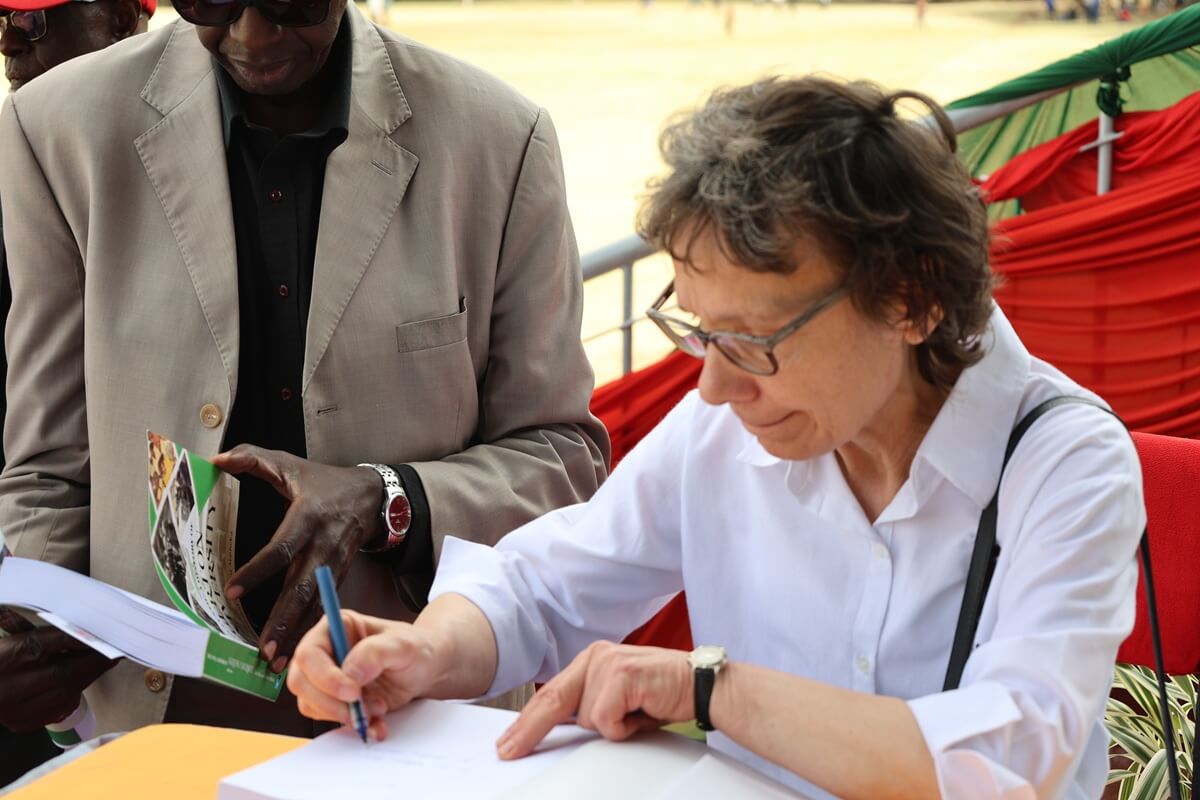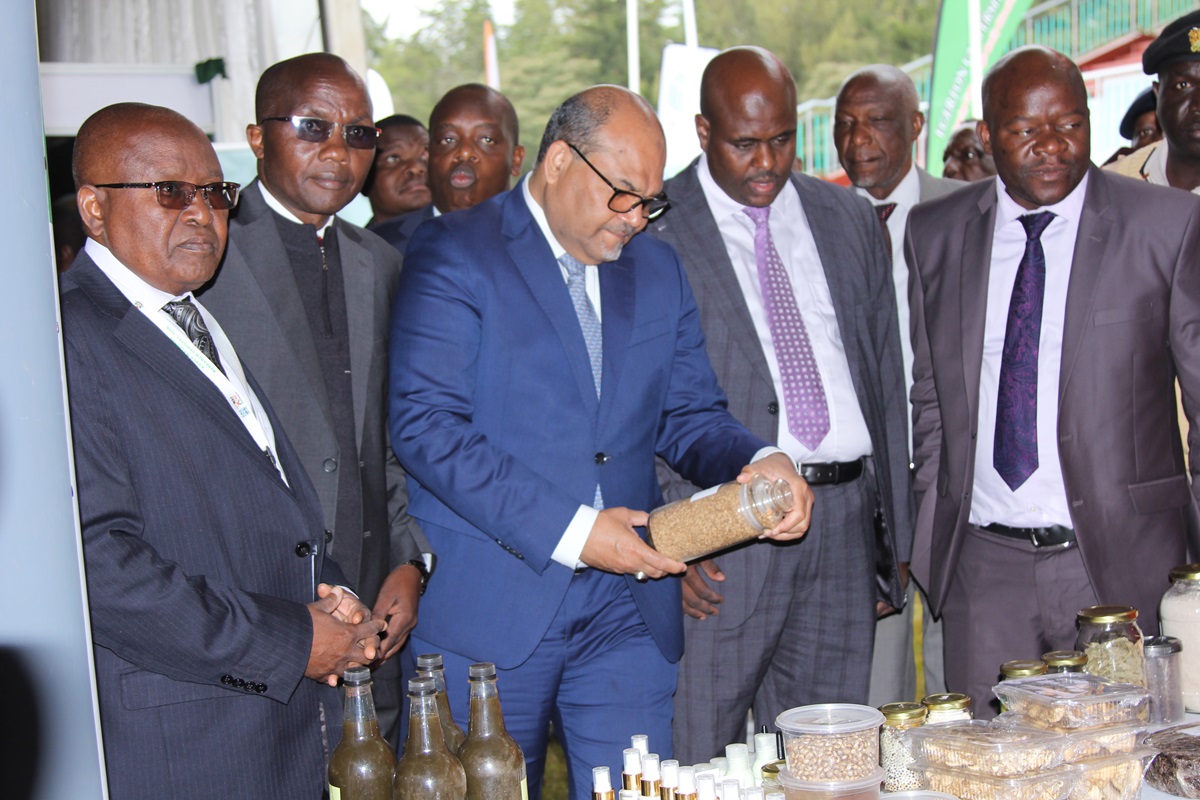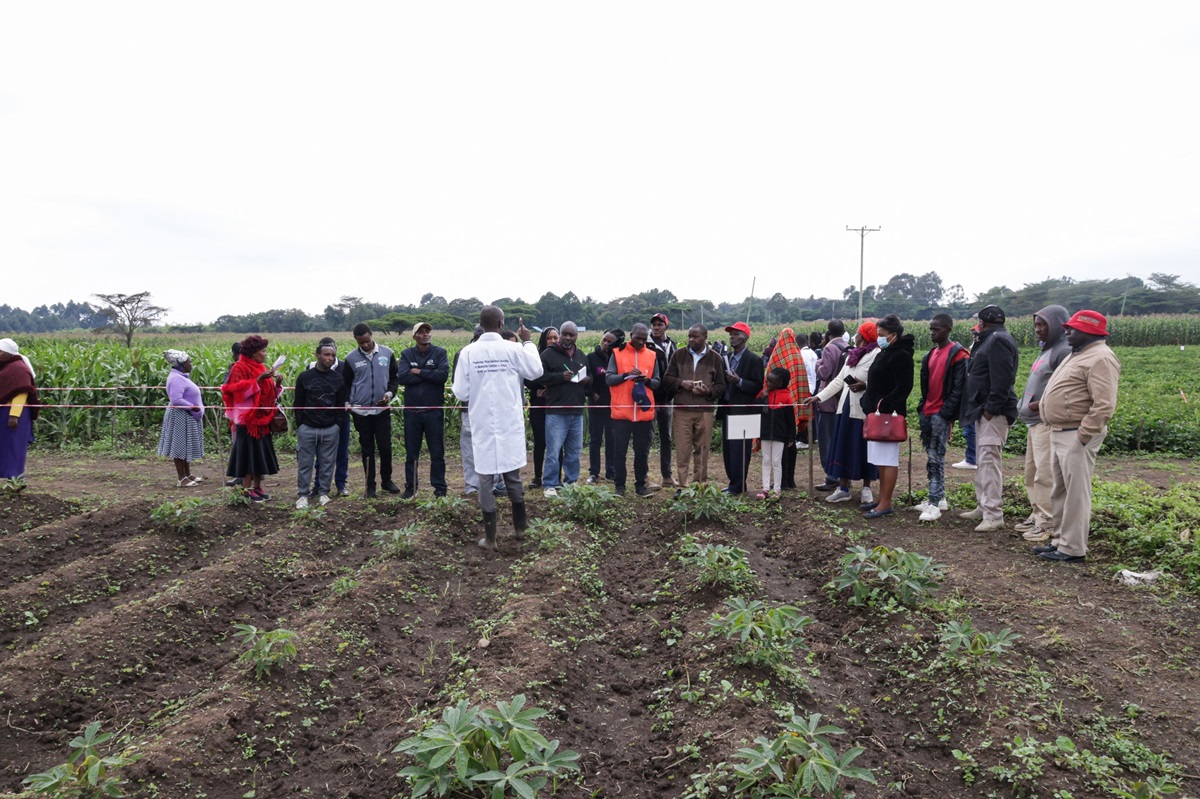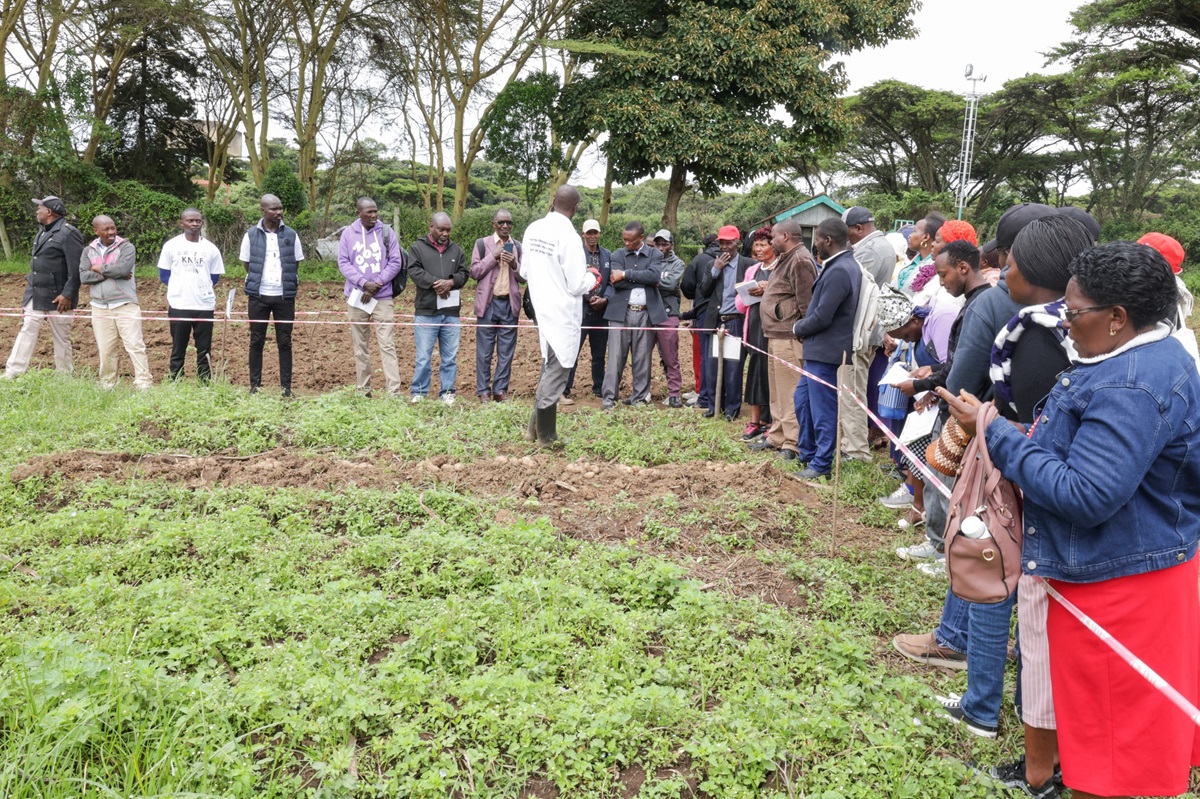The Agroscience Park at Egerton University attracted more than 300 farmers during the National Research Festival. Farmers saw new technologies tested under real farm conditions.
Researchers showed progress in participatory variety selection. Trials for diseases such as halo blight in beans, ascochyta blight in chickpea, fusarium wilt in pigeon peas, necrotic disease in maize, and blast in millets were on display. Fertilizer and foliar spray trials were also presented.
Egerton University Vice Chancellor, Prof. Isaac Kibwage, emphasized partnerships. “Agroscience Park is a living laboratory. With partners, we are transforming agriculture by linking research to practice.”
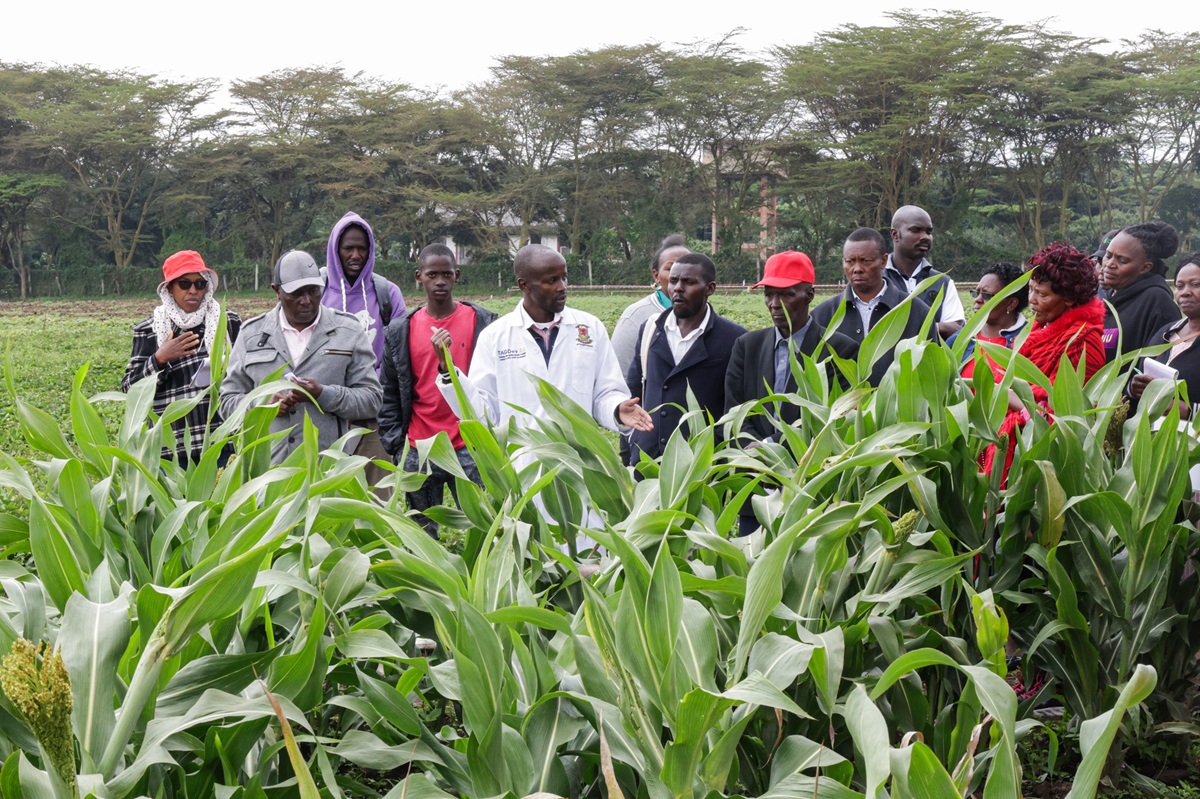
Hybrid maize was showcased from CIMMYT, SeedCo and Faida Seed. Soybean and chickpea varieties were displayed. New bean types such as Tatoon and Zebra drew interest. Farmers also saw pigeon pea varieties, including the Mpesa vegetable type. This variety produces fresh green pods used for canning or sold in dry areas like Baringo, Laikipia, Elgeyo Marakwet and Makueni.
Principal Secretary for Innovation and Research, Prof. Abdulrazak Shaukat, highlighted government commitment. “Our focus is to support research that translates into productivity. Farmers leaving here will apply knowledge that changes livelihoods.”
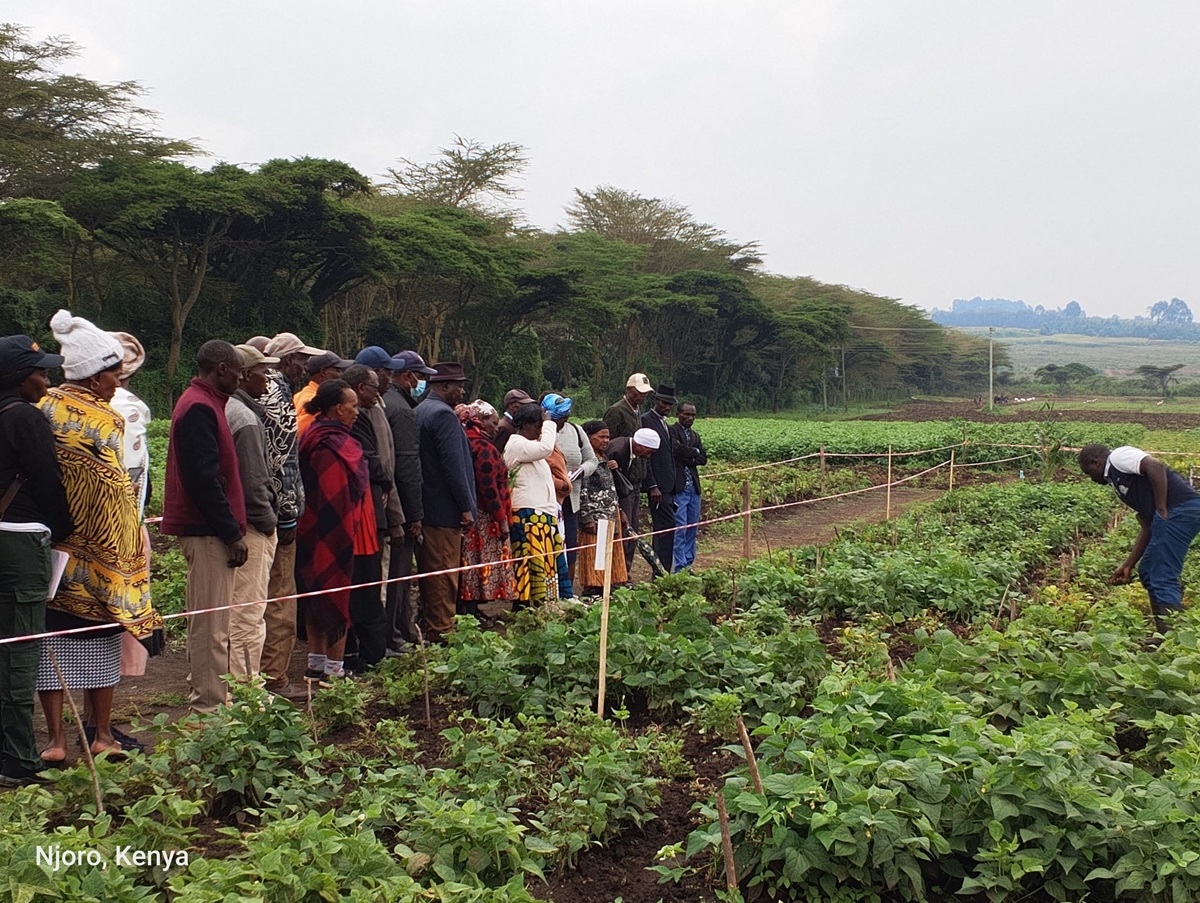
Groundnut innovations such as Ndovu and Mwangaza were demonstrated. Farmers also viewed pasture and fodder options like pachong, sorghum, finger millet and pearl millet.
Contract farming opportunities were explained. Farmers can be contracted by the Agroscience Park to produce certified seed of beans, groundnuts, millets and sorghum. Kephis certification ensures agreed prices and quality seed.
Nutrient-dense varieties were another highlight. These crops are rich in iron, calcium, zinc and protein. They can be used in baby food or to enrich maize, cassava, sweet potato, rice and wheat.
Director of the Agro-Science Park, Prof. Paul Kimurto, underscored the practical value. “We demonstrate varieties and technologies under real conditions. Farmers learn, test and decide what works best for them.”
On food safety, training focused on aflatoxin management. Farmers learnt to apply Aflasafe from Kalro, adopt resistant varieties like Ndovu, improve storage, and dry grain on polythene instead of soil. They were also guided on shelling at the right moisture level.
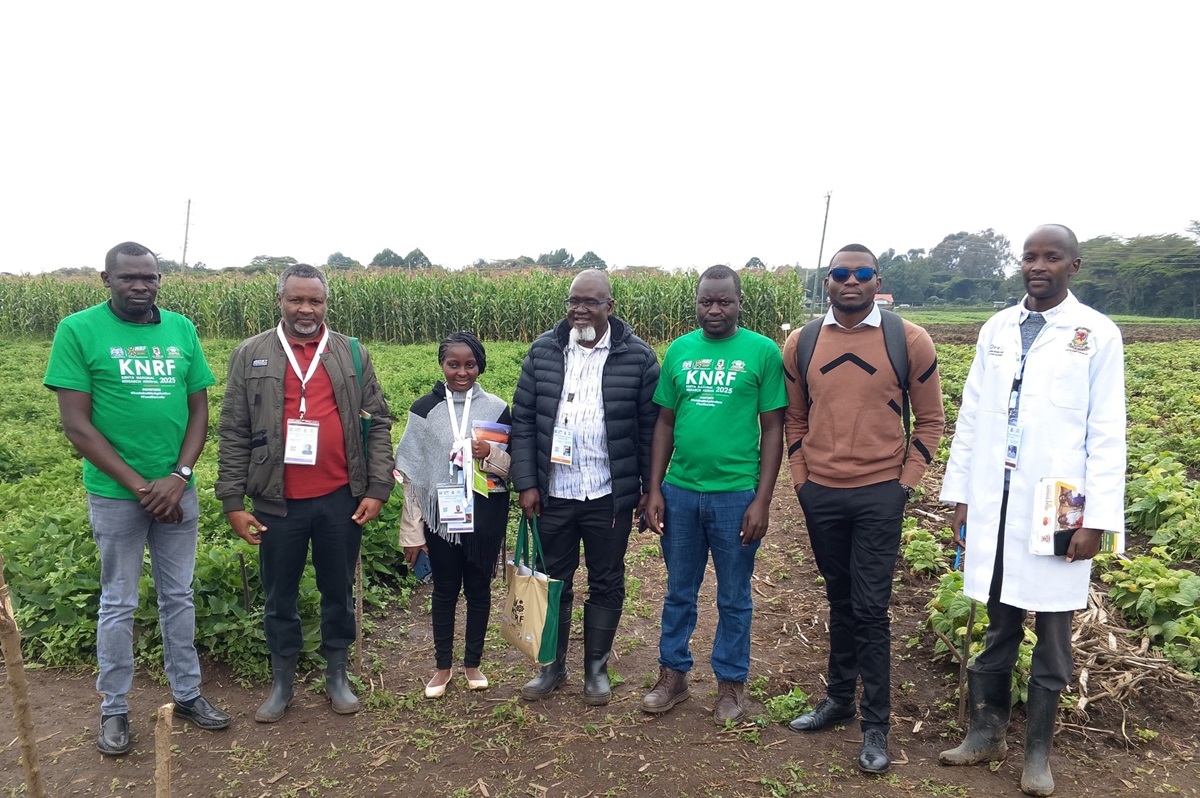
National Research Fund CEO Dr. Dickson Andala praised the demonstrations. “This Agro Park model shows how research can directly impact farmers. What we see here are real solutions to food security challenges.”
Egerton’s Director of Marketing and Resource Mobilization, Prof. Nzula Kitaka, thanked stakeholders. “We appreciate NRF, counties, seed companies, research agencies and farmers. Your support made this festival and Agro Park success possible.”
Key visitors included NRF Kenya, NRF South Africa, Kalro, county governments, Konza Technologies, Kenia, Kephis, seed companies and youth groups.The Agro Park proved innovation can thrive under real farm conditions.
By Kurian Musa, Communications Officer, Egerton University.





